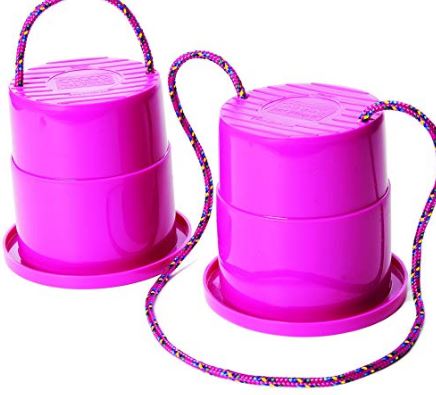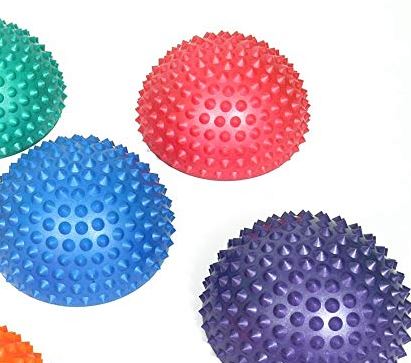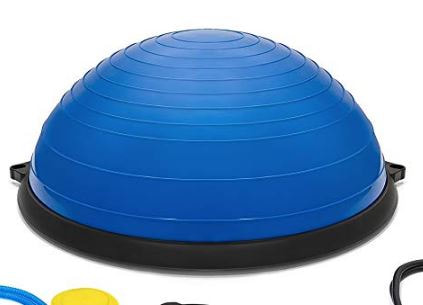|
Your kid’s balance system is important to your child. It is placed within the cerebellum (part of the brain’s neural structure), which is vital for higher learning, critical thinking and analysis. Neuroscientific research studies suggest that balance and coordination support children’s vision and posture, including the ability to pay attention and retain information.
To compensate for their academic ‘shortcomings’ they finish schoolwork that's thought of “good enough,” however doesn’t lead to achieving their full potential. These children are bright and want to learn, the simply lack core functions in the cerebellum, that creates a disconnect within the brain for higher learning. Sadly these persistently these kids drift within the system and never get the intervention needed to fast-track their psychological development. Children that have biological process delays, chronic ear infections or a traumatic event at birth are typically at risk of balance and coordination problems as they become older. Children’s balance and hearing have variety of neural pathways in common so learning challenges may be caused by a life-event which disrupts the connections within the brain used for process and deciphering data. In her text, “Attention, Balance, and Coordination, - the A. B. C. of Learning Success” Sally Goddard Blythe writes, “When movement potency is non-heritable, degrees of freedom become possible: bilaterally, rhythm, flexibility, motor designing, and control. Coordination and balance are crucial for the event of those higher skills.” The Warning Signs of Balance and Coordination Problems |
| If your kid struggles with balance and coordination problems, you may see these signs or symptoms:
|
Balance and Coordination Activities
1. Sensory Steps
As children master this task, mix up different ways to cross; forwards, sideways, backwards, turning around their longitudinal axis. This activity should be undertaken 3 – 5 times per week.
2. Bosu Jumps
3. EZ Stepper Walks
Have your child place their feet on the buckets of the EZ Steppers and hold the ropes with their hands (ensure the child pulls the ropes tightly to prevent falling). When your child feels stable, have them begin walking forward using their arms and feet to move the steppers. Make sure they walk across a flat surface that is not slippery.
Testing for Balance and Coordination Development
School support staff are able to assist you test your child for balance and coordination issues. Common signs and symptoms may be toe walking, W-sitting, bedwetting, poor balance and coordination, underdeveloped vestibular and proprioceptive systems, and trouble with motor planning.
If your child struggles with any number of these issues, it could be an indication that the nervous system is underdeveloped.
More
Articles:
All
*10 MUSTS With First Aid*
*3D Printed Prosthetics For Children*
*5 Benefits Of Gymnastics*
*Acrobatics Benefits*
*ADHD In Schools*
*Albert The Amazing AirGym*
*Are Prime Drinks For Kids*
*Aromatherapy May Help Manage ADHD*
*Athletic Excellence Across All Sport*
*Badminton*
*Barefoot Benefits Brain Development*
*Boost Your Child's Memory*
*Core Muscle Activities*
*Don’t Worry I’ll Land Safely*
*Equipment Hire*
*EXAM STRESS*
*Exercise For Your Brain*
* Fidget Spinners - Good Or Bad For The Classroom?*
* Flexible Seating *
*Games For On A Basketball / Tennis Court*
*Games For The Classroom
*Girls Gymnastics*
* Gymnastics Is Important ...*
*Gymnastics Vacation Day*
*Gymnastrix's Equipment Hire Service*
*Handstands In Gymnastics*
*Help Your Child's Brain Development *
*Hidden Sugar*
*Home Gymnastics*
*How Core Muscle Development Can Prevent Learning Classroom Learning Challenges
* How Exercise Transforms Your Student's Learning *
*How Short Exercise Breaks Reduce Obesity*
*How To Boost Your Recovery*
* How To Fall Safely*
*How To Get Better Sleep*
*How To Manage Muscle Soreness*
*Importance Of Dance*
*Improve A Child’s Handwriting*
*Improving Cartwheels*
*Laundry Basket Ball*
*Learning Maths While Exercising Means Better Results*
*Lockdown Olympics*
*Making Mini Tramps Safe*
*Mastering Flexibility*
*Mastering The Forward Roll*
*Missing Power For Athletes*
*Move A Nation*
*Move It Boys*
* My Schooling Experience*
*Ninja Warrior Day*
*Ninja Warrior Party*
*Number 10 Parkour*
*Number 1 Football*
*Number 2 Swimming*
*Number 3 Cycling*
*Number 4 Skating*
*Number 5 Basketball*
*Number 6 Running
*Number 7 Walking*
*Number 8 Gymnastics*
*Number 9 Racquet*
*Paper Plate Discus*
*PE Games For Stage 3*
*Primary School Games #1*
* Reducing Injuries*
*Simple Steps To Teach A Forward Roll*
*Sleep Deprivation Is Harming Our Students*
*Stop Your Bad Eating*
*Summary Of Exercise Benefits By John Ratey*
*Super Hero Day*
*Supporting Teachers With The Gymnastics Equipment*
*Table Tennis*
*Take The Sugar Test.*
*Team Building*
*The Cartwheel*
*The Morning Mile*
*The Pros Of Using ChatGPT*
*The Top 10 Ways To Sit For Children And Adults**
*Tips For Teaching Shot Put*
*Top 5 - Effects Of Dancing*
*Training The Vestibular Sense*
*Training Through Injury*
*Warm Up Games - It's Not What You Think.*
* What Are The Top 3 Reasons Schools Use External Gymnastics Providers? *
*WHAT ELSE DO YOU LEARN IN DANCE?*
*What Is Tempo Training?*
*What Is Vestibular Sense*
*What Protein Is Best For You?*
*Which Essential Oils Benefit Your Child*
*Why Balance Is Important*
*Why Breathing*
*Why Is Sugar So Addictive*
*Why Sports*
*Will Eating Fat Make Me Fat*
*W Sitting*






